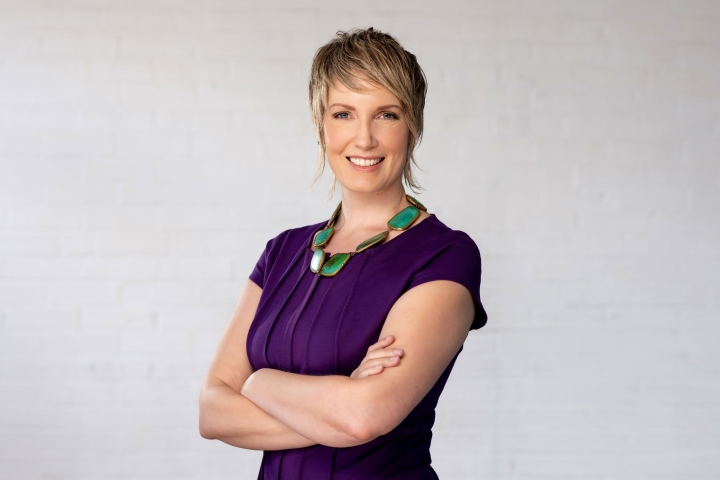Kathryn Bezella, a vice dean and longtime admissions officer at the University of Pennsylvania, has been appointed assistant vice president and dean of undergraduate admissions at Dartmouth.
Bezella’s appointment, which is effective Oct. 1, was announced by Lee Coffin, vice president and dean of admissions and financial aid, to whom she will report. As a vice dean at Penn, Bezella served as director of strategy and innovation in its undergraduate admissions office.
“Kathryn’s broad portfolio at Penn included an impressive background in strategic marketing and communications, visitor relations, pipeline development, and staff management and development,” Coffin says. “In short, she is incredibly prepared to lead these initiatives at Dartmouth.”
Beginning in 2006, when she joined Penn’s undergraduate admissions office as a regional director, Bezella held a number of leadership roles. From 2012 to 2015 she was director of strategy and communications at the Wharton School, Penn’s business school, where she also served as interim director of MBA admissions and financial aid.
She left the university in 2015 to serve as vice president of the Curtis Institute of Music but returned to Penn the following year to take on the role of vice dean, director of marketing and communications, in the undergraduate admissions office. She held that position until 2023, when she was appointed vice dean, director of strategy and innovation.
Bezella says that among the many reasons she wished to work at Dartmouth was the palpable “spark” she detected when friends and colleagues who are alumni talk about their experiences in Hanover.
“People love it so deeply,” she says. “They attribute so much learning and the development of their intellect and their personhood and their love of nature—all of these things—back to Dartmouth.”
Following Coffin’s promotion to vice president last year, Bezella will assume day-to-day leadership of the undergraduate admissions staff in McNutt Hall. Coffin will continue to work with President Sian Leah Beilock and fellow members of her senior leadership team to guide the institution’s navigation of macro trends in admissions and financial aid.
As an admissions professional, Bezella says she had particularly admired the menu of supplemental essay options that Dartmouth has offered undergraduate applicants in recent years.
Those “prompts” have included quotes from prominent alumni, including Theodor Seuss Geisel, Class of 1925, and the late football coach Buddy Teevens ’79. Others implore students to plumb an aspect of their personalities or sensibilities.
Had she been applying for the incoming Class of 2028, Bezella says she would have likely chosen to respond to the prompt that asks, simply: “Celebrate your nerdy side.”
“I was so inspired, as I saw the opportunity for specificity and for fun,” she says. “Anybody for whom that question resonates—regardless of the level of their resources or whether they’re from a big town or small town—if that’s a ‘side’ you have, that is a wonderful invitation to really share with the admissions committee something unique about yourself.”
Bezella received a bachelor of arts degree in English from Barnard College in 2000 and a master’s degree in higher education management from Penn in 2013.
Asked about her first job after graduating Barnard, she says, “I was a talking dog in a musical.” She played that role, in an adaptation of the children’s book Martha Speaks, in a national touring production based on the PBS program Reading Rainbow.
“A lot of my management techniques actually come from one of my acting teachers in New York City,” she says.
Later, at Wharton, Bezella learned important lessons about problem-solving, data analysis, and designing systems from students and faculty alike.
Among her immediate priorities once she arrives in Hanover, she says, is to put questions about Dartmouth to admissions colleagues, students, faculty, administrators, and alumni, and to listen carefully to their responses.
“I want to learn everything about Dartmouth I can from those different audiences,” she says. “I want to gain an even greater appreciation of the place and how people feel connected to it, and then I want to think creatively about what I can add or amplify—or in some cases shift—in response to what I’m hearing.”
She adds: “I’m always thinking about audiences. And I’m always thinking, ‘What is the emotional part of what we’re doing that, at the end of the day, needs to connect with that mom or that dad, or that student or that staff member?’ ”
